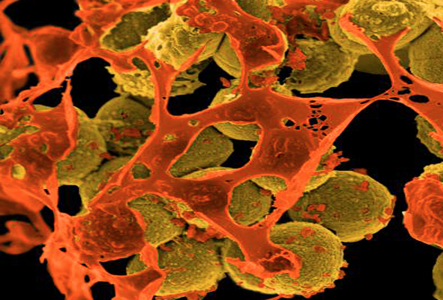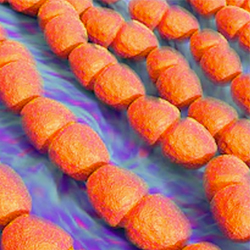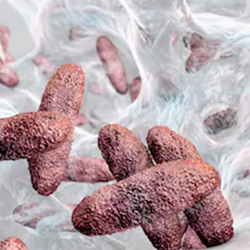By Ethan Covey
Higher rates of bloodstream infections (BSIs) were found in patients during the COVID-19 pandemic—particularly those in the ICU—compared with the prepandemic period, according to a study presented at the 2021 virtual European Congress of Clinical Microbiology & Infectious Diseases (abstract 653).
“It has been reported that certain viruses come predisposed to bacterial superinfection,” said Maria Angeles Orellana-Miguel, MD, of the Department of Clinical Microbiology, Hospital Universitario 12 de Octubre, in Madrid. “Some studies have suggested that SARS-CoV-2 can enhance colonization and attachment of bacteria to host tissue, and could increase tissue destruction, which might increase the risk of blood infection and sepsis.”
However, as Dr. Orellana-Miguel noted, reports of bacterial coinfection and superinfection in COVID-19 patients are limited.
The retrospective study analyzed the number of blood cultures ordered—and corresponding results—from March 1 through April 27, 2020, and during the same period in 2019. A total of 6,007 and 4,671 blood cultures corresponding to 2,086 and 1,647 patients were analyzed from the 2019 and 2020 periods, respectively. This corresponded to a blood culture-per-patient rate of 2.88 during 2019, and a slightly lower rate of 2.83 during 2020.
Although there was an overall decrease in blood cultures ordered during the COVID-19 period, there was an increase in the percentage of positivity (13% vs. 17.4%) and contamination (5.4% vs. 8.8%). In addition, more males had positive blood cultures during the pandemic period (53.5% vs. 61.5%).
There was a statistically significant increase in rates of coagulase-negative staphylococci (CoNS) during the pandemic period, and CoNS was the most frequently isolated microorganism in patients with a positive SARS-CoV-2 polymerase chain reaction (PCR) test. Comparatively, there was a decrease in Enterobacterales, although they remained the most frequently isolated pathogens in patients who were untested or had negative SARS-CoV-2 PCR results.




